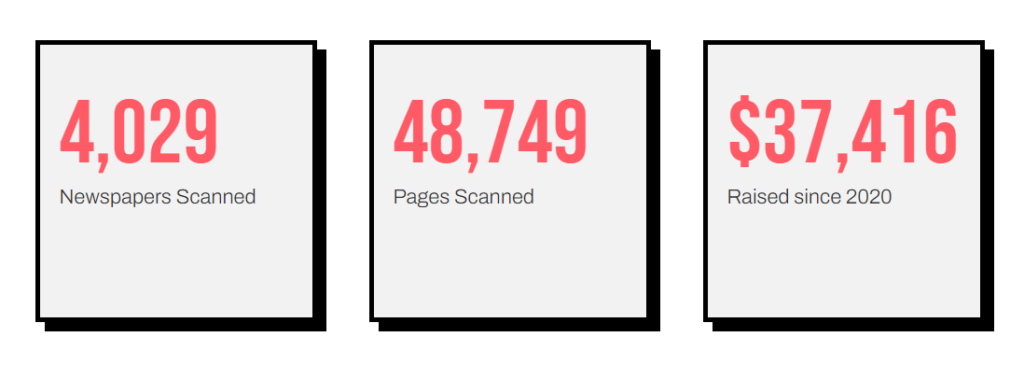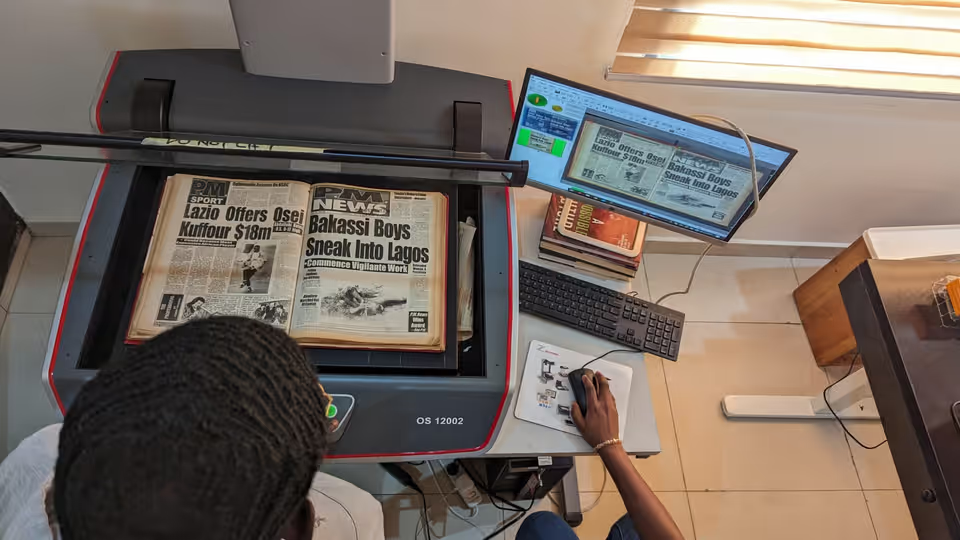In recent times, conversations around fraud and the Nigerian youths have dominated popular culture, with the general direction of thought being that it’s a result of a gradual moral decline in the last two decades.
When Samson Toromade, the editor-in-chief of Pulse Nigeria, who holds an opposing view wanted to contribute to the conversation on X, he came with proof; a picture of a newspaper page from 1998 with a headline about the US postal service’s attempts to stop advance fee fraud letters sent by Nigerian scammers. He got the picture from Archivi.ng.
In a world where information is at our fingertips, the story of Nigeria’s history has been locked away, hidden within the yellowed pages of newspapers, slowly fading into obscurity. However, a non-profit is on a mission to change that narrative. They are the driving force behind Archivi.ng, a groundbreaking project aiming to digitise every edition of every Nigerian newspaper from January 1, 1960, to December 31, 2010 – a monumental task that promises to reshape the way Nigerians, and the world, access their history.
Nigerian history abounds in newspapers and magazines. Since colonial times, the country has maintained a rich newspaper tradition. The early leaders of the country led the march to independence from Britain on the backs of their newspapers, Obafemi Awolowo, the first premiere of Nigeria’s Western Region with his Nigerian Tribune and Nnamdi Azikiwe, the first president of the country with his West African Pilot.
Even after independence newspapers continued to play a pivotal role, the Daily Times echoed Yakubu Gowon’s war cry “To keep Nigeria one, is a task that must be done” during the Biafran war, and Dele Giwa’s Newswatch Magazine was a constant thorn in the sides of consecutive military governments, courageously chronicling their failings. But all that history is about to be gone, what Fu’ad Lawal, the Archivi.ng team lead, described as an irreparable loss.
“When these newspapers eventually decompose – and they will – we will have lost the largest repository of Nigerian chronicle and perspective. All the features, ads, conflict, agony columns, recipes, letters and speeches – gone,” Lawal said.
Newspapers have an incredibly short lifespan, buy one today and it’s your source for valuable news, tomorrow it becomes the packaging for your evening suya. Libraries and National archives across the country attempt to safeguard some newspapers but facing several challenges from termites that destroy these papers, to government budget cuts, they’ve generally been fighting a losing battle.
Now Archivi.ng is digitising these papers. Toyin Falola, a foremost Nigerian historian and professor of African Studies, speaking to Al Jazeera described Archivi.ng as a nationalist and restoration project.
A Journey to the past begins
The roots of Archivi.ng begin with Fu’ad Lawal, a former Editor-in-Chief of Nigerian pop-culture powerhouse, Zikoko, who, unable to find historical context for contemporary stories he was working on embarked on a seemingly impossible journey. His mission: to find and archive one newspaper for every day between 1960 and 2010. What began as a weekend hobby soon turned into a realisation of the immense value these newspapers held.
Within five months, of working with a group of friends, they had tracked down an astonishing 95% of the target newspapers.

That was the easy part. Registering as a non-profit, without which they wouldn’t be able to access existing national archives and purchasing the required industrial-grade scanner to digitise the papers proved a herculean task.
The team had to navigate a global supply chain crisis and Nigeria’s complex government bureaucracy. Some calls to well-placed individuals, a bit of Nigerian customs trouble, and several donations and substack posts later, they sorted all the issues out. Almost 4 years after Fu’ad first had the idea for Archivi.ng, scanning started on April 17, this year.
The first version of Archivi.ng, a searchable website of Nigerian newspapers from 1994-2010 launched on September 30th. “It marks the beginning of our road to becoming a dependable repository of Nigerian newspapers and a window to history. We’ve transformed an old format into a modern, user-friendly interface, allowing seamless access to pivotal moments in Nigerian history.” Fu’ad said.
Get passive updates on African tech & startups
View and choose the stories to interact with on our WhatsApp Channel
Explore




